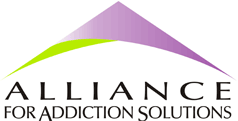Nutritional Therapy: The Missing Key to Addiction Recovery
If you would drop into an addiction recovery program in any city in North America you can expect to find counselors and 12-Step meetings. Today, this is what is called treatment. And yet, according to the National Institute on Drug Abuse, “Research findings from basic and clinical neuroscience have shown addiction to be a complex disease of the brain and behavior from which people can recover with treatment, as is the case with most medical diseases.”
If addiction is a disease of the brain, where is the focus on brain repair? Members of the Alliance for Addiction Solutions use many of the same psycho-spiritual practices as conventional treatment programs, and in addition, they give the brain
the nourishment it needs. Nutritional intervention is the missing key to recovery from all addictions, whether it be to substances or behaviors.
The brain needs many specific nutrients to create neurotransmitters, the super-chemicals that broadcast natural messages of reward and pleasure from one nerve to another throughout the brain and body. Increasing the transmission of these positive messages eliminates cravings for addictive substances and behaviors.
Rapid, effective and long-lasting recovery is possible when the addicted person has their own unique biochemistry assessed and corrected. Pioneers in the United States and Canada have been successfully applying nutritional science to addiction treatment since the 1980s.
Many of those pioneers are founders and current members of this Alliance and are generously sharing their wealth of knowledge with the public in a concerted effort to bring a new level of success to the field of addiction treatment.
For example, one of the first studies using a specific brain-targeted nutritional compound found retention rates for cocaine abusers in residential treatment improved from 62.5% to 95.8%. (1) Ten years later, one of the Alliance’s original
founders and author of Seven Weeks to Sobriety, Joan Mathews Larson, Ph.D. reported 83% sobriety two to three years after completing a six-week intensive. (2)
References:
(1) Blum, K, Allison D et al. Reduction of Both Drug Hunger and Withdrawal Against Advice Rate of Cocaine Abusers in a 30-Day Inpatient Current Therapeutic Research. Vol 43. No 6, June 1988
(2) Mathews-Larson, Joan Ph.D. “Alcoholism Treatment With Biochemical Restoration as a Major Component.” International Journal of Biosocial Research. 9(1):92-106, 1987

